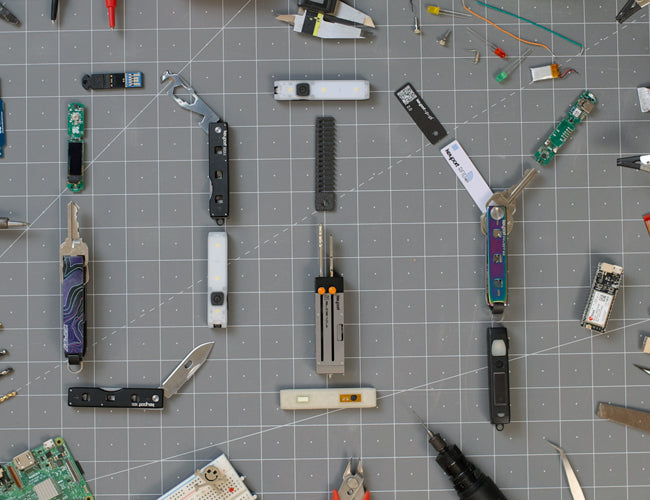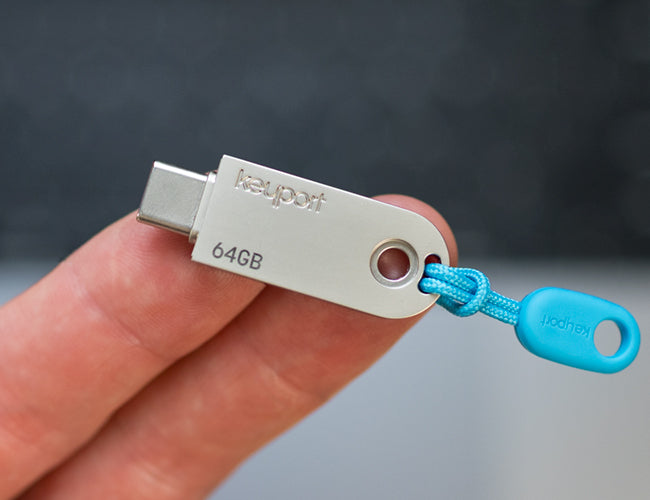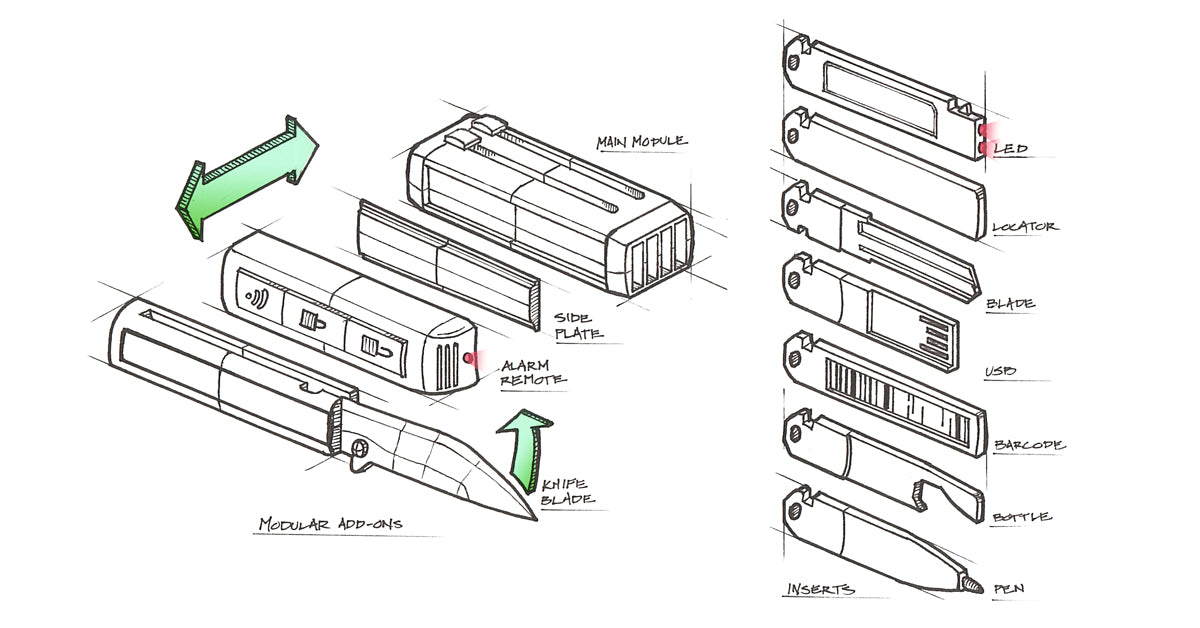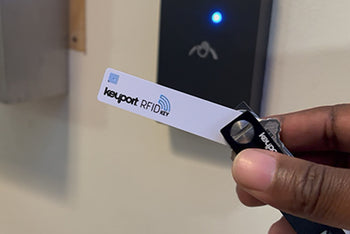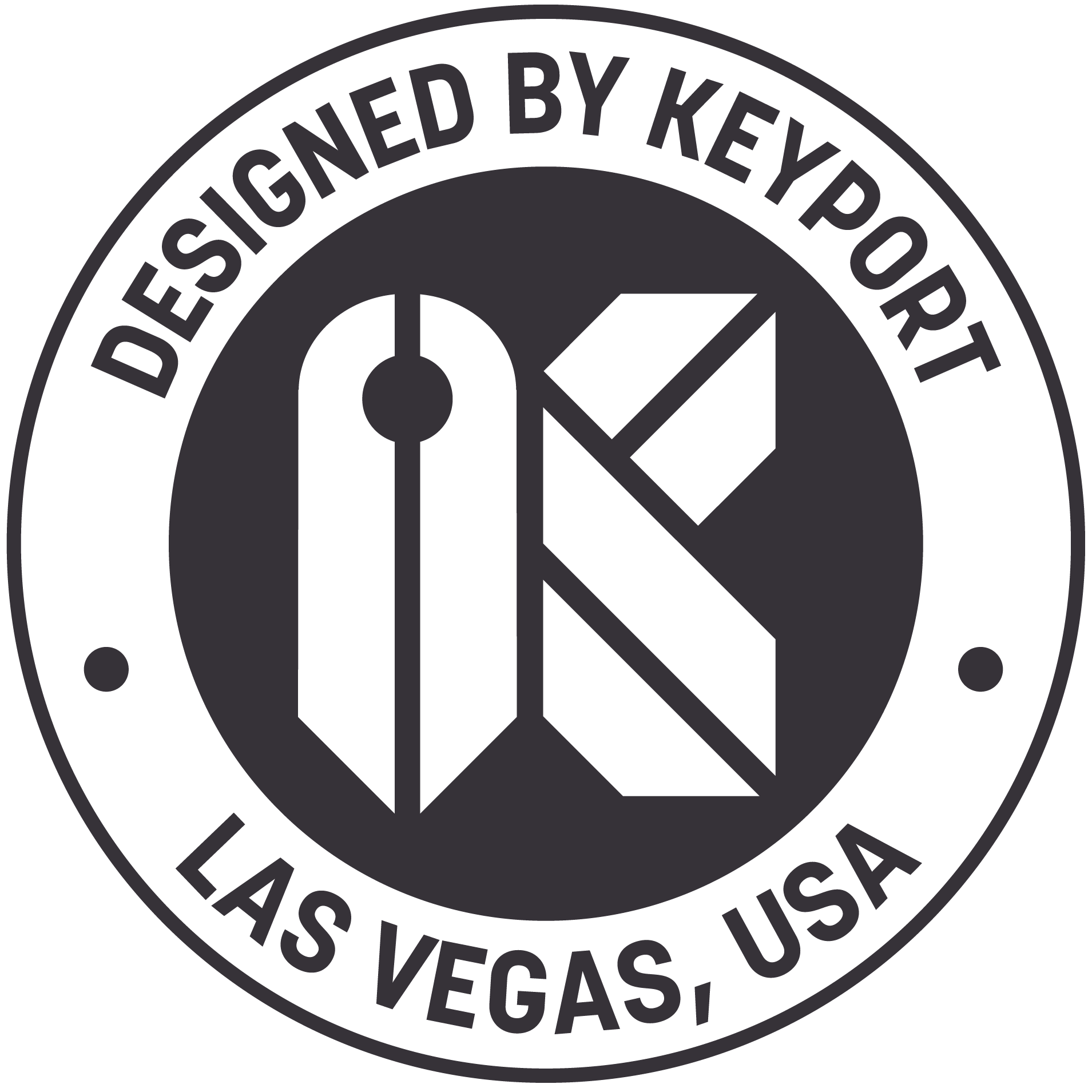How to Copy Your RFID Fob to a Keyport RFID Key Using CloneMyKey
How to Copy Your RFID Fob to a Keyport RFID Key Using CloneMyKey
Do you have an RFID key fob or card that you would like to copy so they fit in your Keyport?
If you have key fobs that look like one of the above that you hang off your D-ring or carry separately, you can now get them cloned onto an ultra thin Keyport RFID Key which fits securely in your Keyport Pivot or on the RFID Holder Module that works on the Slide, Pivot, and Anywhere Tools
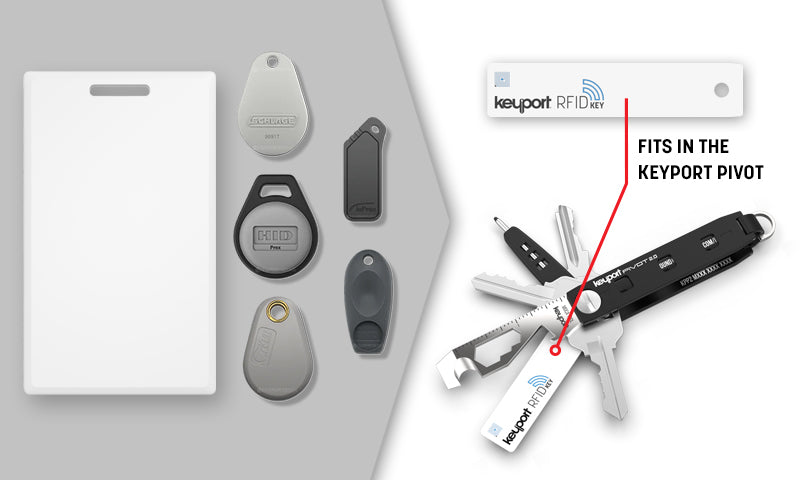
Keyport Pivot & Slide Compatible RFID Key
The Keyport RFID Key was co-designed and developed with our partner and RFID expert, CloneMyKey, to be compatible with the Keyport Pivot 1.0, Keyport Pivot 2.0, Slide 3.0 + Slide 4.0 key organizers. It’s shaped to fit perfectly within the Keyport Pivot’s chassis, and it's only 1mm thick so it hardly takes up any space on your Pivot’s key stack. To use the Keyport RFID Key, just rotate it out of the Pivot and hold it close to the reader or place the Slide’s RFID Holder Module next to the reader.
Benefits & Features
- Incorporate minimalist access to your home, office, safe, gun box, cabinet, and more.
- Cleans up a bulky keychain with oddly shaped RFID fobs attached
- No longer need to attach RFID fobs and cards to your Pivot or Slide’s D-ring
- No need to pull RFID cards out of your wallet
- Combine multiple RFID Keys to one Pivot and still have plenty of room for metal keys
HOW IT WORKS VIDEO
About CloneMyKey
The Easiest Way to Copy RFID Fobs and Access Cards
Founded in March of 2013, CloneMyKey was the first company to offer copying services for key fobs and access cards commonly used in apartments, condos, and offices. CMK's specialty remains copying radio frequency identification (RFID) based keys, but they also support other technologies including high-security smartcard, iButton®, and magnetic key technologies.
CloneMyKey is a replacement/duplicate key service which is in no way affiliated with, or endorsed/sponsored by, the original key provider.
CloneMyKey.com began in a college apartment at the University of Wisconsin – Madison. The founder, Bryan Tintes, a computer science student who didn’t like the idea of paying an outrageous fee for a second key fob, successfully developed his first method for duplicating RFID based proximity keys. Since then the company has rapidly expanded to serve customers in over 35 countries and has saved customers more than $5 million dollars by offering a low-cost alternative to expensive RFID key duplication services.
CloneMyKey also offers specialized and unique RFID access control supplies for customers ranging from property management firms to Fortune Global 500 technology companies as well as government entities, including defense & intelligence agencies. The company’s public portfolio includes Marriott Hotels, Samsung, Honeywell, Sandia National Lab, Aegis Defense, Hubb NYC, Dormigo, and the Canadian federal government. In addition, CloneMyKey provides physical security and product design consulting services, advising several notable companies including Microsoft, Palace of Westminster, and others.
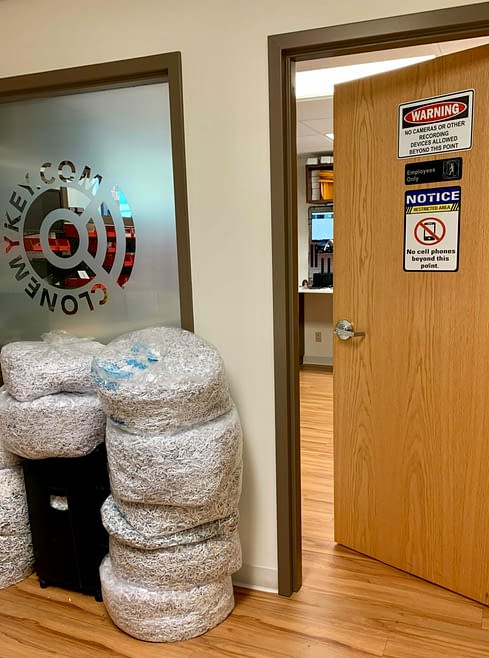
CloneMyKey’s Emphasis on High Security
CloneMyKey places top priority on securing your data.
- All key data is encrypted and stored on a secure network not connected to the Internet.
- Any documents sent to CloneMyKey are shredded after use.
- CloneMyKey employees do not have access to sensitive billing information, and CMK uses a Level 1 PCI DCC compliant credit card handler.
- CloneMyKey's data storage system uses air gapped technology, and all key data is secured with cascading encryption utilizing AES, RSA, DSA, and other cryptosystems. CMK also uses cipher keys up to 4096 bits in length. Encrypted key data is not revealed in plain text and can only be used by company equipment to make additional duplicate keys.
Keyport RFID Key Pricing
The pricing for a Keyport RFID Key starts at $24.99 for a low frequency chip, $34.99 for a high frequency chip, and $54.99 for a dual chip. This pricing is very competitive with other RFID cloning services, and the level of customer support and warranty is second to none.
CloneMyKey offers coverage up to $265 per original key if damaged during cloning, a full 30 days to test your new RFID key, and includes a one-year limited warranty that covers product and material defects.
How to Copy an RFID Fob/Card onto a Keyport RFID Key
Visit CloneMyKey’s Key Copying Wizard and click on the GET YOUR KEYPORT RFID KEY NOW button.
Select the type of RFID key you want to copy.
Find your exact key fob from images displayed.
Review copying options and other details on the keys format page. Depending on the type of RFID key you have, you may be able to complete the entire process online using CMK’s Snap N’ Send option. Otherwise, you may be required to use the mail in service, and send an actual copy of your RFID key to CMK.
Select how you'd like to copy your key (Snap N' Send or Mail In Service) - CloneMyKey offers three different options for copying your key fobs and cards.
Snap N' Send
CloneMyKey's main service does not require you to mail your original key. Simply take a photo of the serial number printed on your key fob or card and complete the online application. You could have a duplicate key fob in as little as one business day.
CMK’s main service simply requires a picture of the serial number printed on your key fob or card. This number is typically found on the back of your key.
CloneMyKey's proprietary database contains information on thousands of addresses in the United States and Canada. In order to properly use the database, CloneMyKey does require the address of the location where the key is used. For this service, they also require proof of residency to ensure you are the owner or legal user of the key. CloneMyKey will never contact your landlord.
Mail-In Service
CloneMyKey offers a mail-in service for those who are uncomfortable with or unable to utilize the online service. It is the best option for newer key formats that use encryption or contain other advanced security methods that guard against cloning. CMK also recommends the mail-in service for any compatible keys that do not contain a printed/visible serial number. CMK has successfully shipped thousands of packages back to customers, and they offer a $265 insurance guarantee that covers the cost of replacement if lost.
Retail Service
CloneMyKey Express locations are coming soon, and you will be able to get instant copies of your RFID based key fobs & cards at some of your favorite retailers. Support for iButton and high-security keys will also be available at select locations. Use the link below to identify your key format which will help narrow down locations that support your key. On our locations page you will notice several locations do require an appointment while others do not
Once you confirm your RFID Key type and select the cloning option, you will be shown a list of available form factors to purchase including the KEYPORT RFID Key (STYLE 45).
Select the Keyport RFID Key (Style 45).
Then all you have to do is to finish the standard e-commerce checkout process. Users that selected the mail-in service receive instructions on how to mail their RFID fob or card to the CloneMyKey office.
Types of RFID Chips Cloned
There are three primary types of RFID chips - low frequency (LF), high frequency (HF), and dual chip (both low & high frequency chips in one key). The Keyport RFID Key is able to accommodate all three RFID chip types.
Low Frequency (LF) - Works on 125Khz. This technology has been around since the mid 1980’s. While one could argue that an LF RFID chip contains security and “encryption”, it is nowhere near today's standards and is probably more comparable to barcodes than anything else. It is simply a serial number in a specific format that is transmitted wirelessly. It is still popular in new buildings as it is very cost effective and simple to implement and maintain. These LF keys take less than a minute or two to copy. That said, it is important to note that there are dozens of different LF formats, and some are harder to copy than others. So it is unlikely that key copying kiosks or even locksmiths can copy them all. Based upon years of experience having copied tens of thousands of LF RFID fobs, tags, keys, and access cards, CloneMyKey is the only RFID cloning company that can claim to be able to copy ALL LF formats.
HF - Works on 13.56Mhz.This is the newest access control technology that uses advanced encryption to help protect against cloning/copying. It costs quite a bit to install but more and more buildings are adopting the standard. Since there is true encryption using the HF format, the RFID fob most likely needs to be mailed into the CloneMyKey office and can take anywhere from 20 minutes to 2.5 days to copy. CloneMyKey is one of a handful of companies that offer copying for these types of formats.
Dual Chip - Works on both 125Khz & 13.56Mhz.Dual chip keys use both chips inside one key. This has become popular for buildings that wish to add security but not fully replace an existing LF based system. Typically the private residence doors are what get the HF upgrade and the common access areas (pools, gyms…) remain on the LF system.
Frequently Asked Questions
Yes, it is possible to copy most key fobs currently used in the market today. Some key fobs are easy to copy while others take specialized equipment. When you copy a key fob, the original key fob must stay activated for the copy to work. Some newer key fob formats use encryption making them more difficult to copy, while only a select few formats are still impossible.
To properly identify your key, simply use CloneMyKey’s Copy Wizard. It is a guided process that will help you determine if we can copy your key and which options are currently available.
Yes, with their Snap N’ Send service, CloneMyKey can often make a duplicate using the printed serial number on your key. Most keys only display part of the required key data on the outside of the key. CMK has proprietary access to a database that contains the missing data for most locations around the United States and even many in Canada.
Yes, CloneMyKey often can clone parking passes if the format is listed on their compatibility page. Please be aware that many parking systems use a feature called anti-passback which tracks if the vehicle is inside the garage or not. If this feature is enabled then any copied passes will still only allow one vehicle in at once. If you are required to scan your parking pass to exit the garage there is a high likelihood that the anti-passback feature is being used.
Please note that CMK can only duplicate parking passes that are listed on their compatibility page. Many parking passes use technology they cannot copy. If your parking pass works at distances greater than 12 inches, there is a high likelihood CMK cannot copy it.
Unfortunately not. To maintain the highest standards of security, we are unable to sell blank Keyport RFID Keys because they were specifically designed to work ONLY with CloneMyKey's equipment.
Manufacturers have started installing RFID based proximity chips in all types of products including wristbands, wallets, rings, garage door remotes and much more. CMK can often copy this functionality onto one of their many key blanks including our NEW Keyport RFID Key!
No, it does not. But we have a different solution for integrating auto and motorcycle keys with RFID transponder chips into the Keyport Slide. To find out if your key is compatible, send a picture of it along with the year, make, and model of your car to our support team. Simply click on the chat icon in the bottom right corner to message us.

